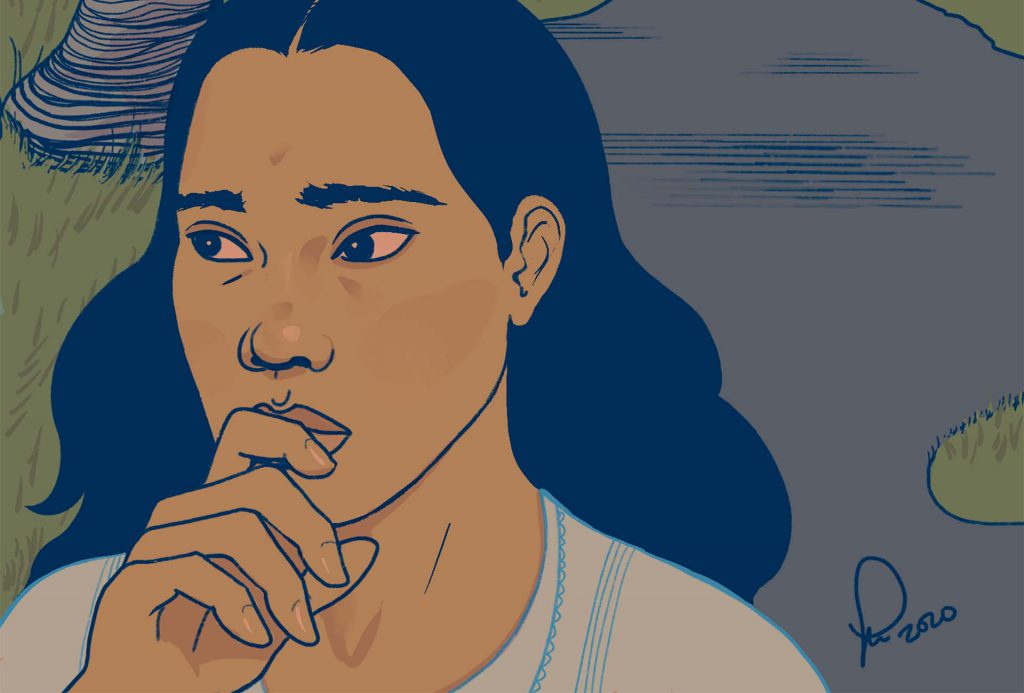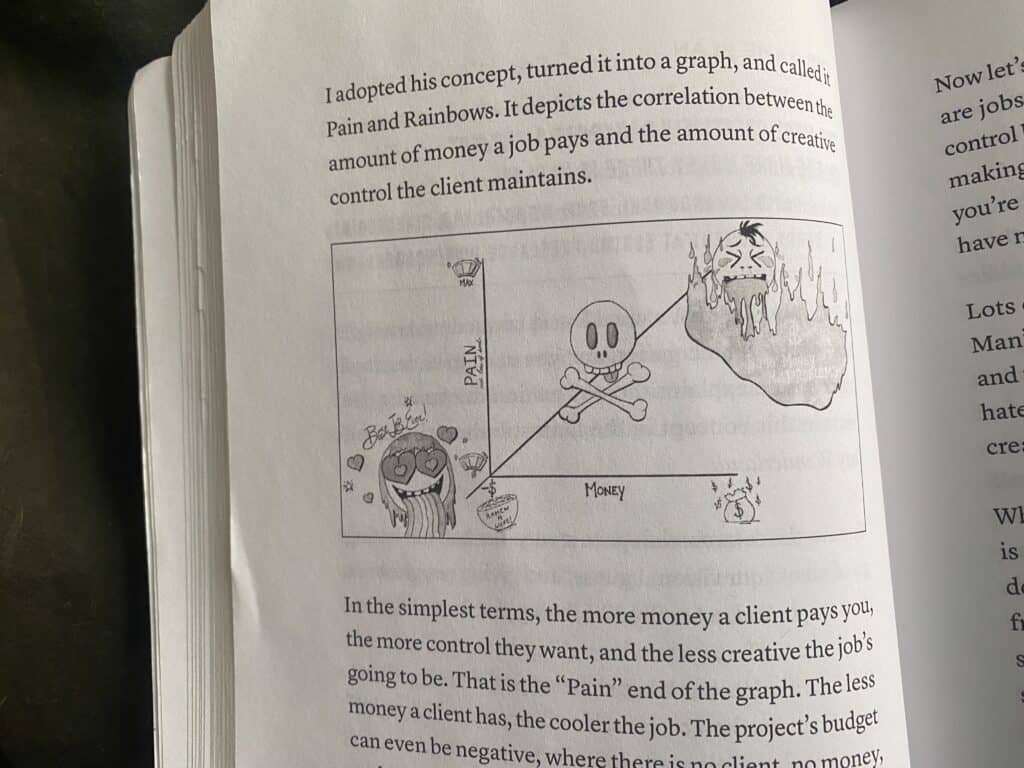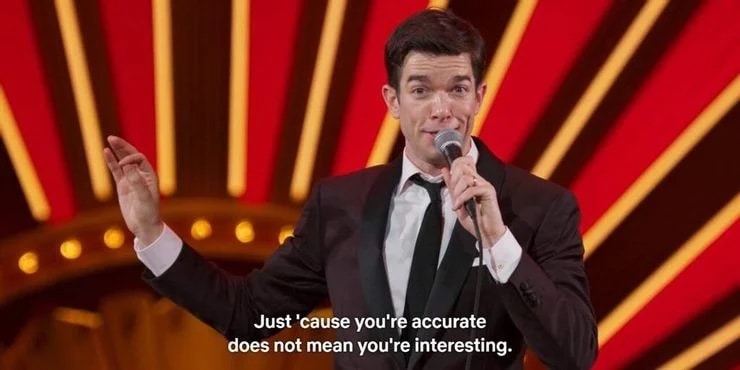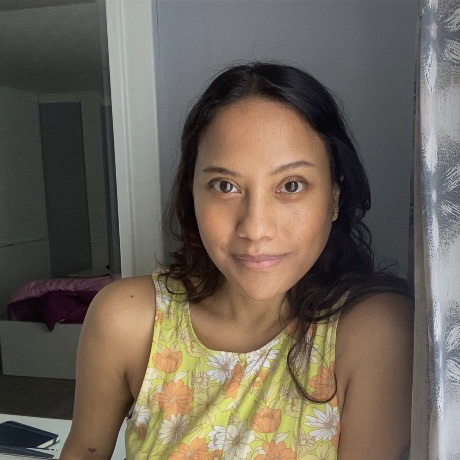The Freelance Manifesto
Revisiting one of the motion designer bibles in 2021

The situation
This is it. This is the one that made me do it. The Freelance Manifesto: A Field Guide for The Modern Motion Designer.
The thing is, I've heard this from other people, too: This book gave a lot of people the courage to try freelancing.
While the onset of the COVID-19 pandemic took all of our circumstances, put the setting on high, and scrambled them into an unrecognizable holy mess, I would say that there was a distinct turning of the tide towards freelancing in my general demographic before it even happened. This would be due to two main things:
1. A gig economy
I'm not a musician, but I am an artist with ties to the DIY punk community in Chicago. This means I know a lot of line cooks, bartenders, waiters, Uber drivers, dog walkers, sex workers, and baristas.
2. People in or approaching their 30s and getting really tired of the gig economy
At some point, you realize that your life is kind of a mess because you're locked into a perpetually unstable existence, due largely to the whims of variably competent supervisors. Being a gig worker is, by its very nature, a seesaw lifestyle with sudden stops and starts. It's hard on the knees, especially when you've hit 30. And for some people, they've realized that if they're going to do this, they might as well be more in control of the stopping and the starting.
Five years ago, I got out of waitressing with relief, and entered the IT industry. This proved to be both stable and interesting for me. But even as I continued to learn new skills and problem-solve, I was at a bit of a loss: was I really sure I wanted to do this for the rest of my life? I had also, more or less, completely stopped doing anything creative, and I could feel my soul dying a little each day.
I was let go from my job at the beginning of 2020, like many, many other workers. I had a little bit of savings, and I wanted to take the time to understand exactly how people entered the freelance community. Or did they "become" freelancers? Was there a freelance community? Wasn't being a freelancer sort of literally cutting you loose from a community? Also, I had to figure out what I actually wanted to do while being a "freelancer." I wanted to start my second career.
The freelance life is one of the best-kept secrets I know. It's a secret I uncovered by accident and with one word — yes. That's all it took, and suddenly, I was a freelancer. It's a secret that made me feel GUILTY when I started doing it. What do you mean I can triple my salary and work fewer days? And still do work I'm proud to put on my reel? It seemed INSANE. Aren't Artists supposed to be "starving"? I felt soooo guilty ... until my first client paid my first invoice. Then all I could think was, Wow, this actually works. IT WORKS. Why isn't everyone doing this?
Joey Korenman, The Freelance Manifesto
The book
The book is divided into two very useful parts. The first one, "Part 1: The Freelance Manifesto," is about getting your head right and understanding the philosophy (there's that word again!) behind freelancing. The second, "Part II: The Freelancer's Field Guide," gets into the practicalities of the profession.
I'm not entirely sure why motion design has seen such a big jump in recent years. How much of that interest has been fueled by the publication of this book, which came out in 2017? Maybe it's a perfect storm of readily available personal computing power, the continuing ubiquity of the Internet, and the ongoing dominance of YouTube videos, in addition to the ascendance of gig sites like Fiverr and Upwork. If the market demands it, someone's gonna show up and do it.
The reason why this book has what amounts to a philosophy section in addition to a practical guide is because it's very important to even have what Joey Korenman calls a "why." He actually credits an artist named David Lewandowski for the concept:
How you use your time is determined by your goals and your bigger why — basically, what you want to do with your life.
Joey Korenman, The Freelance Manifesto
To illustrate this, Joey introduces something called a Pain and Rainbows graph.

With this, we are introduced to one of the creative industry's most enduring truths:
In the simplest terms, the more money a client pays you, the more control they want, and the less creative the job's going to be. That is the "Pain" end of the graph. The less money a client has, the cooler the job.
Joey Korenman, The Freelance Manifesto
In other words, you'll get paid gobs of money to work on extremely boring stuff, and little to no money to flex your creative muscle. This is why you need to figure out your why — it gets you through the "Pain" jobs, so you can attain your why, which may include doing jobs on the "Rainbow" end (ie, wildly creative and fun stuff for penniless nonprofits, or something).
I have another animator friend named Kyle who's at the other extreme. He loves travel and snowboarding — that's his why — and he doesn't need hundreds of thousands of dollars to do what he wants in life. But he has reached that point in his freelance career where he can take on a few big-paycheck jobs at the Pain side of the scale, so he can spend lots of his time traveling, snowboarding, and doing work he wants to do at the Rainbow end.
Joey Korenman, The Freelance Manifesto
Doesn't this sound amazing? It certainly does, to every sleeping stiff locked into a 9-5 cycle. You see, there are still a lot of people who don't want to admit that the current American workplace standards suck balls. Five days' sick leave? Two weeks vacation per year? I think the pandemic jostled a lot of people loose, especially when they started to understand how much time was being sucked away from them on a daily basis. To bring up a minor example, people got precious about their sourdough starters because they suddenly had the time to invest in them. But for a major example, some people wanted to change their whole damn lives. They could not face the prospect of going back to the way things were. In many ways, the COVID pandemic forced this question: What do you really want out of your life?
Part II: The Field Guide, both the longer and (arguably) less consequential portion of this book, gives you plenty of valuable, actionable strategies for building up your freelance contacts, scheduling follow-ups, and deciding on your rates. There is also a detailed description of the somewhat confusing "hold" system, as well as some really valuable advice on client wrangling. Joey would like you to know that you should be nice. There are lots of people out there with comparable skills to yours, but if you're nice, they will hire you over the pain in the ass who might be slightly more talented.
If there was one core idea or point you could take away from the book, what would it be?
Why are you doing this "life" thing again?
What are some issues that could be present?
I've noticed that in life, there's a type of person who tends to ignore all the philosophy and artistry behind stuff and just sticks to "doing" the things. It's the kind of person who asks "What settings did you use?" when confronted by a really cool video effect. They can recreate it, but they don't know why they're doing it. They don't know what it means.
These are also the people who point out every single plot hole in a movie and say things like, "Technically it's tomorrow" when the clock turns to midnight.

Don't be one of these people. You can go through the motions, but until you define what you really want — what your why is — you're just going to go through some slightly different motions than the ones you were doing before. The whole point is finding the point.
Final Thoughts
It's scary to decide to take control of your life. I'm still working on that fear factor. But for me, it's not been a question of whether I would take the step to "be my own boss." It was imperative that I do so. To fail to do so seemed to be tantamount to a choice to forfeit my life away to an unavoidable profit-mongering system — a system which required managerial approval to mess with. But when I looked closer at it, I saw that it did have some interesting slide-y features and toggle buttons on the underside, and if I worked very hard to understand them, I would be able to unlock myself and be free of it — as much as is possible.
We are still emerging from this historical world event. We'll be reeling from the effects and the implications for years, and many of us will never be the same — those of us who were lucky enough to make it through. From a certain perspective, we have been given a gift — a dramatically different way of experiencing life — and we must decide what we will do with this information. What will you do now?

Hi! I'm Piya. I'm a freelance creative starting a new career, and I want to help you start yours, too.